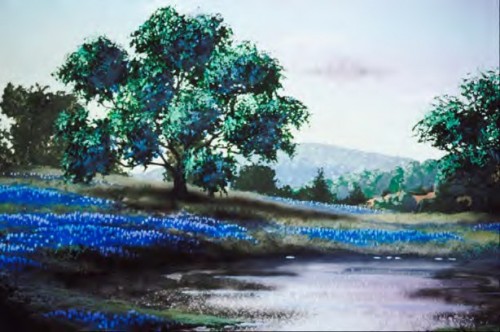|
TREES >> Perceptions, Knowledges, Principles
 And out of the ground made Jehovah God to grow every tree desirable to behold, and good for food; the tree of lives also, in the midst of the garden, and the tree of the knowledge [scientiae] of good and evil. A "tree" signifies perception; a "tree desirable to behold" the perception of truth; a "tree good for food" the perception of good; the "tree of lives" love and the faith thence derived; the "tree of the knowledge of good and evil" faith derived from what is sensuous, that is, from mere memory-knowledge [scientia]. [AC102] And out of the ground made Jehovah God to grow every tree desirable to behold, and good for food; the tree of lives also, in the midst of the garden, and the tree of the knowledge [scientiae] of good and evil. A "tree" signifies perception; a "tree desirable to behold" the perception of truth; a "tree good for food" the perception of good; the "tree of lives" love and the faith thence derived; the "tree of the knowledge of good and evil" faith derived from what is sensuous, that is, from mere memory-knowledge [scientia]. [AC102]
The reason why "trees" here signify perceptions is that the celestial man is treated of, but it is otherwise when the subject is the spiritual man, for on the nature of the subject depends that of the predicate. [AC103]
At this day it is unknown what Perception is. It is a certain internal sensation from the Lord alone, as to whether a thing is true and good; and it was very well known to the Most Ancient church. This perception is so perfect with the angels, that by it they are aware and have knowledge of what is true and good; of what is from the Lord, and what from themselves; and also of the quality of anyone who comes to them, merely from his approach, and from a single one of his ideas. The spiritual man has no perception, but has conscience. A dead man has not even conscience; and very many do not know what conscience is, and still less what perception is. [AC104]
The "tree of lives" is love and the faith thence derived; "in the midst of the garden" is in the will of the internal man. The will, which in the Word is called the "heart" is the primary possession of the Lord with man and angel. But as no one can do good of himself, the will or heart is not man's, although it is predicated of man; cupidity, which he calls will, is man's. Since then the will is the "midst of the garden" where the tree of lives is placed, and man has no will, but mere cupidity, the "tree of lives" is the mercy of the Lord, from whom comes all love and faith, consequently all life. [AC105]
But the nature of the "tree of the garden" or perception; of the "tree of lives" or love and the faith thence derived; and of the "tree of knowledge" or faith originating in what is sensuous and in mere memory-knowledge, will be shown in the following pages. [AC106]
He who desires to be wise from the world, has for his "garden" the things of sense and of memory-knowledge [sensualia et scientifica]; the love of self and the love of the world are his "Eden"; his "east" is the west, or himself; his "river Euphrates" is all his memory-knowledge [scientificum], which is condemned; his "second river" where is "Assyria" is infatuated reasoning productive of falsities; his "third river" where is "Ethiopia" is the principles of evil and falsity thence derived, which are the knowledges of his faith; his "fourth river" is the wisdom thence derived, which in the Word is called "magic." And therefore "Egypt"-which signifies memory-knowledge [scientia]-after the knowledge became magical, signifies such a man, because, as may be seen from the Word, he desires to be wise from self. Of such it is written in Ezekiel:
Thus hath said the Lord Jehovih, Behold, I am against thee, Pharaoh king of Egypt, the great whale that lieth in the midst of his rivers, who hath said, My river is mine own, and I have made it for myself. And the land of Egypt shall be for a solitude, and a waste, and they shall know that I am Jehovah, because he hath said, The river is mine, and I have made it (Ezek. 29:3, 9).
Such men are also called "trees of Eden in hell" in the same Prophet, where also Pharaoh, or the Egyptian, is treated of in these words:
When I shall have made him descend into hell with them that descend into the pit; to whom art thou thus made like in glory and in greatness among the trees of Eden? yet shalt thou be made to descend with the trees of Eden into the lower earth, in the midst of the uncircumcised, with them that be slain by the sword. This is Pharaoh and all his crew (Ezek. 31:16, 18),
where the "trees of Eden" denote knowledges [scientifica et cognitiones] from the Word, which they thus profane by reasonings. [AC130]
 That "every fowl after its kind" signifies every spiritual truth, "flying thing" natural truth, and "winged thing" sensuous truth, is evident from what has been stated and shown before concerning "birds" (as at n. 40). The most ancient people likened man's thoughts to birds, because relatively to the things of the will, thoughts are like birds. As mention is made here of "fowl" "flying thing" and "winged thing" and of these in succession, like things intellectual, rational, and sensuous in man, in order that no one may doubt that they signify these things, some passages from the Word may be adduced in confirmation, from which it will also be plain that "beasts" signify such things as have been stated. That "every fowl after its kind" signifies every spiritual truth, "flying thing" natural truth, and "winged thing" sensuous truth, is evident from what has been stated and shown before concerning "birds" (as at n. 40). The most ancient people likened man's thoughts to birds, because relatively to the things of the will, thoughts are like birds. As mention is made here of "fowl" "flying thing" and "winged thing" and of these in succession, like things intellectual, rational, and sensuous in man, in order that no one may doubt that they signify these things, some passages from the Word may be adduced in confirmation, from which it will also be plain that "beasts" signify such things as have been stated.
[2] Thus in David:
Thou madest him to have dominion over the works of Thy hands: Thou hast put all things under his feet; all sheep and oxen, yea, and the beasts of the fields, the fowl of the heaven, and the fish of the sea (Ps. 8:6-8).
This is said of the Lord, whose dominion over man, and over the things pertaining to man, is thus described. Otherwise what would be the dominion over "beasts" and "fowls?" Again:
Fruitful trees and all cedars, the wild animal and every beast, creeping things and flying fowl, let them praise the name of Jehovah (Ps. 148:9-10, 13).
The "fruitful tree" denotes the celestial man; the "cedar" the spiritual man. The "wild animal" and "beast" and "creeping thing" are their goods, as in the history before us; the "flying fowl" is their truths; from all of which they can "praise the name of Jehovah." By no means can the wild animal, the beast, the creeping thing, and the bird do this. In profane writings such things may be said by hyperbolism, but there are no hyperbolisms in the Word of the Lord, but things significative and representative.
[3] In Ezekiel:
The fishes of the sea, and the fowls of the heaven, and the wild animal of the field, and all creeping things that creep upon the earth, and all the men that are upon the face of the earth, shall shake at My presence (Ezek. 38:20).
That such things are here signified by "beasts" and "fowls" is very manifest; for how would it be to the glory of Jehovah if fishes, birds, and beasts should shake? Can anyone suppose that such sayings would be holy if they did not involve holy things? In Jeremiah:
I beheld, and lo there was no man, and all the birds of the heavens were fled (Jer. 4:25),
denoting all good and truth; "man" also denotes here the good of love. Again: They are burned up, so that none passeth through, neither can men hear the voice of the cattle; both the fowl of the heavens and the beast are fled, they are gone (Jer. 9:10),
denoting in like manner that all truth and good have departed.
[4] And again:
How long shall the land mourn, and the herb of every field wither? for the wickedness of them that dwell therein the beasts are consumed and the birds, because they said, He shall not see our latter end (Jer. 12:4).
Here the "beasts" denote goods, and the "birds" truths, which perished. In Zephaniah:
I will consume man and beast, I will consume the fowls of the heaven and the fishes of the sea, and the stumbling-blocks with the wicked; and I will cut off man from off the face of the ground (Zeph. 1:3).
Here "man and beast" denote the things which are of love and of its good; the "fowls of the heaven and the fishes of the sea" the things which are of the understanding, thus which are of truth. These are called "stumbling-blocks" because goods and truths are stumbling-blocks to the wicked, but not beasts and birds; and they are also plainly spoken of "man." In David:
The trees of Jehovah are satisfied, the cedars of Lebanon which He hath planted, where the birds make their nests (Ps. 104:16-17).
The "trees of Jehovah" and the "cedars of Lebanon" denote the spiritual man; the "birds" his rational or natural truths, which are as "nests."
[5] It was moreover a common form of expression that "birds would make their nests in the branches" signifying truths, as in Ezekiel:
In the mountain of the height of Israel will I plant it, and it shall lift up its bough, and bear fruit, and be a goodly cedar; and under it shall dwell every bird of every wing; in the shadow of the branches thereof shall they dwell (Ezek. 17:23),
denoting the Church of the Gentiles, which was spiritual. This is "the goodly cedar;" the "bird of every wing" denotes truths of every kind. Again:
All the birds of the heavens made their nests in his boughs, and under his branches all the wild animals of the field brought forth, and under his shadow dwelt all great nations (Ezek. 31:6).
This is said of Asshur, which is the spiritual church and is called a "cedar;" the " birds of the heavens" denote its truths; the "beasts" its goods. In Daniel:
The leaves thereof were fair, and the fruit thereof much, and it was meat for all; the beasts of the field had shadow under it, and the fowls of heaven dwelt in the branches thereof (Dan. 4:12, 21).
Here the "beasts" denote goods, the "fowls of the heavens" truths, as must be evident to everyone; for otherwise of what concern is it that the bird and the beasts dwelt there? And it is the same with what the Lord says:
The kingdom of God is like unto a grain of mustard seed, which a man took and cast into his garden, and it grew, and became a tree, and the birds of the heaven lodged in the branches thereof (Luke 13:19; Matt. 13:31, 32; Mark 4:31, 32). [AC776]
Author: EMANUEL SWEDENBORG (1688-1772)
|
|